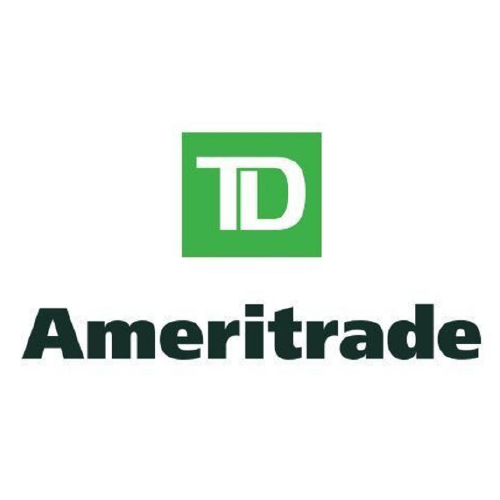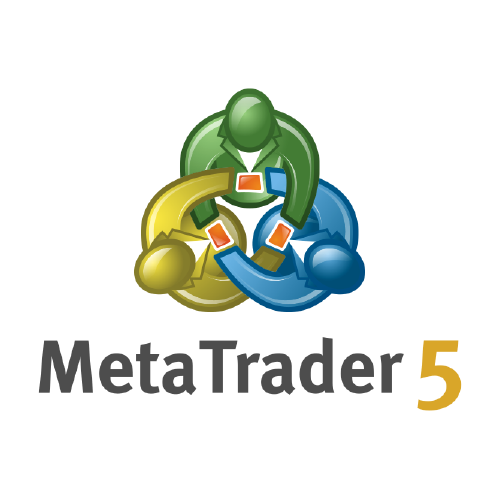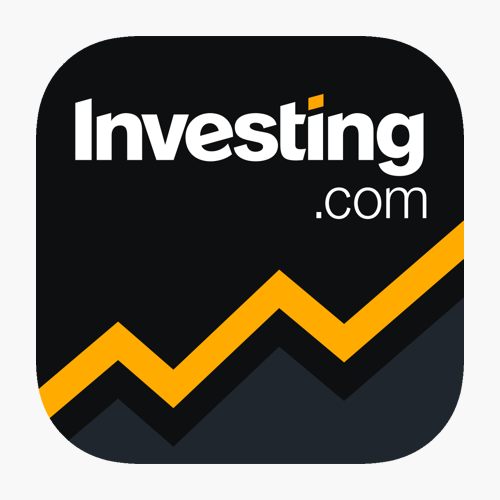
Can You Make Money Trading Forex?
- How Traders Get Rich
- Case Study 1: George Soros
- Case Study 2: Bill Lipschutz
- Case Study 3: Stanley Druckenmiller
- Final Thoughts
Trading forex successfully is difficult and does not happen overnight. However, for those willing to put in the time and effort, and to take the necessary calculated risks, it is possible to get rich trading forex.
In this article we will introduce some of the world’s most successful and well-known forex traders, examining how they made their fortunes and exploring what you can learn from their achievements.
We also suggest some training courses that could help to set you on the path to a lucrative career trading forex.
How Traders Get Rich
A professional forex trader is generally considered to be someone whose primary income is derived from trading on the forex market. They may work for themselves, investing their own capital, or they might work for hedge funds or international banks, trading with clients’ money.
Those working for an employer receive a salary which can range from around £45,000 to upwards of £150,000.
The average income of someone trading on their own behalf is harder to quantify because forex is so decentralised and trading budgets vary widely. As a rough guide, a professional forex trader would consider themselves successful if they were achieving around a 20% return on their capital.
Different forex traders will have different definitions of success, so you must understand what you want to achieve from your trading and set yourself realistic goals. If you can consistently generate a monthly profit trading forex then you are doing well. However, if you want to get rich, it is worth looking to those individuals who have achieved the most remarkable forex returns:
Case Study 1: George Soros
In 1992, Soros became known around the world as ‘the man who broke the Bank of England’.
At the time, Britain was part of the Exchange Rate Mechanism (ERM), which was set up to create a more stable monetary policy across Europe and to make exchange rates less variable.
Under the terms of the ERM, the British Government was required to intervene if the pound fell below a certain level compared to the German Deutsche Mark.
Soros foresaw that the Bank of England had been left vulnerable thanks to a combination of factors, including Britain’s high interest rates and high level of inflation.
As the value of the pound depreciated, Soros built up a huge short position in pounds sterling through his Quantum Fund. Following his lead, other traders also started betting against the pound.
On Tuesday, September 15th 1992, Soros began selling off vast amounts of sterling, causing its value to drop even further.
The following day, the Bank of England started buying up pounds in an attempt to prop up the currency, but as Soros continued to flood the market, the Bank’s plan had little effect.
That evening, the government announced that Britain would leave the ERM. The date, September 16th 1992, became known as Black Wednesday.
Soros made a reported profit of $1 billion in the process and earned a place in history.
To this day he is still recognised as one of the world’s best forex traders.
He is a proponent of the theory of reflexivity, a belief that investors’ perceptions of the market affect prices, which in turn influence how investors perceive the market. This was illustrated to dramatic effect in the run-up to Black Wednesday.
Case Study 2: Bill Lipschutz
He joined the investment bank Salomon Brothers in 1982. Forex markets were just taking off and Salomon Brothers had formed a new foreign exchange division which Lipschutz was asked to join.
He was an instant success, and by 1984 had become the principal forex trader for the firm. By the following year, he was reportedly making $300 million a year for Salomon Brothers.
He stayed with the company until 1990 and then went on to hold several other positions in foreign exchange. In 1995, he founded Hathersgate Capital Management with some of his former classmates from Cornell, where he remains principal and director of portfolio management.
Lipschutz is often known as the Sultan of Currencies. Like Soros, he believes in the theory of reflexivity, describing forex as a psychological market. He also stresses the importance of risk management, and of recognising that you will often make the wrong decisions when trading forex.
Case Study 3: Stanley Druckenmiller
In 1981, he set up his own company, Duquesne Capital Management. He then went on to work for George Soros for many years, taking the role of lead portfolio manager for Soros’ Quantum Fund and working with Soros on his famous short-selling of the British pound in 1992.
He was featured in the best-selling book, The New Market Wizards, by Jack D Schwager, and survived the economic collapse of 2008.
However, he subsequently closed Duquesne Capital Management, announcing that the constant pressure of living up to his own success had taken a ‘high emotional toll’. His net worth has been valued at more than $4 billion.
Like Lipschutz, Druckenmiller’s approach to forex trading revolves around recognising that you will be wrong much of the time. He emphasises the importance of making the most of the times when you are right and minimising damage when you get things wrong.
These three traders have shown that it is possible to become very rich trading forex, but discipline and courage are required. The traders mentioned above also demonstrated a strong understanding of risk management, as well as an ability to interpret how perceptions are likely to shape the market.
While learning from their achievements, it is also important to remember that there is no one perfect strategy for trading forex. You will need to develop a plan that works for you.
The Best Trading Platforms
Let’s take a look at the best trading to earn more.
1. Liteforex
Best for: Learning from others
Liteforex is one of the most popular online reliable brokers over the world. Over the past 15 years, it has developed a strong reputation for beginners and experienced investors alike, has a minimum $100 deposit.
The Liteforex app aims to use easy for every clients. It is available on Google Play and the App Store and allows you to move seamlessly between devices.
It’s innovative features include:
- Pre-programmed one-click trading
- Copy Trader – Copy the trades of others in real-time
- Its own social networking platform
- Pre provided investment strategies which they call Copy Portfolios
The app boasts the ability to allow you to place online trades even if the trading platform is down.
The information is being presented without consideration of the investment objectives, risk tolerance, or financial circumstances of any specific investor and might not be suitable for all investors.
2. FXTM
The FXTM Platform itself is intuitive and easy to use, suitable for those just getting into trading and those more experienced alike.
It is designed to offer a full replication of an institutional trading environment including depth of market.
With advanced risk management and order functionality, this is a detailed platform for trading stocks.
The FXTM app offers a premium range of order types, with advanced technical analysis tools.
You can set up push and email notifications for the important things that you want to know in relation to your stock trading needs – such as price alerts and trade statistics.
Within the app, you can:
- Complete a range of order types
- Work with all your accounts in one app
- Understand detailed trade analysis
- Review detailed order tickets – base currency dollar value and pip distance
As a platform, there are comprehensive educational videos and explanations of symbols, so you can find optimized processing for expert advisors and indicators.
The information is being presented without consideration of the investment objectives, risk tolerance, or financial circumstances of any specific investor and might not be suitable for all investors.
3. FBS
Best for: CFDs
This app is designed for those wanting to trade outside of the US. It is considered one of the best for CFDs on shares and has a minimum $100 deposit.
There are low trading fees but considerable fees for inactive users.
The educational section is average, as are the research tools. However, the app is easy to use overall.
This app is recommended for those familiar with CFDs and who are actively trading. Reviews of the app show that users like the:
- Account-opening process
- Deposit and withdrawal features
- Customer service
- Actual trading platform
The information is being presented without consideration of the investment objectives, risk tolerance, or financial circumstances of any specific investor and might not be suitable for all investors.
How to Become a Successful Trader
If you are new to the sector, it is a good idea to consider taking a course.
This will give you the tools and techniques you need to get started, and also help you to understand if forex trading is right for you.
The three courses below will all give you a good grounding in the basics of trading forex:
Asia Forex Mentor
Ezekiel Chew the founder at Asia Forex Mentor isn’t your typical trainer. He is a recognized expert in the finance industry where he is frequently invited to speak at major financial events. His insights into the live market are highly sought after by retail traders.
Ezekiel is considered to be amongst the top traders around who actually care about giving back to the community. He makes six figures a trade in his own trading and, behind the scenes, Ezekiel trains the traders who work in banks, fund management companies and prop trading firms.
His highly regarded One Core Program teaches you how to trade not only forex but also stocks, commodities, crypto and more. To Ezekiel, it doesn’t matter what vehicle it is. It’s about trade selection and having various options opens up the best of the best trades.
The One Core Program covers:
The unique way he reads charts with a combination of price action and others. His 16 high win rate strategies that work on every move the market makes. The highly popular Road to Millions formula that turned many new traders into full-time traders. The business behind trading, trade management methods, proprietary point calculation system and many more. It’s no wonder that the One Core Program is considered one of the best trading courses around.
Forex 101
The programme consists of nine video lessons focusing on key forex topics. The lessons are delivered by two industry experts and also come with detailed written notes.
At the end of each lesson, there is a quiz to test what has been learned.
The course is designed to help even complete beginners and can be accessed from anywhere at any time. The lessons are split into three stages; beginner, Intermediate and Advanced, with three video lessons in each.
The beginner stage covers basics such as key terms and how to set up your own demo account. These first three lessons are available to anyone, but if you want to progress to the next stage, you will then need to sign up for a demo account with Admiral Markets.
In the intermediate stage, you will learn how to set up a trading platform, make a demo trade and start thinking about a trading strategy.
The advanced stage covers trading plans in more detail, how to use vital indicators and risk management.
Forex Trading A - Z(™)
It consists of 5.5 hours of video and four articles.
It is available on-demand and you will receive a certificate of completion.
The course is priced at £194.99 but Udemy frequently runs sales and special offers. Once you have purchased the course you will have lifetime access, which includes any new lessons added to the course.
The course covers topics such as:
- How the forex market operates
- Key forex terms
- How to choose a forex broker
- The three types of forex analysis – fundamental, technical and sentimental
- Calculating and managing risk
- Using different types of orders
- How to install and use the MetaTrader 4 trading platform
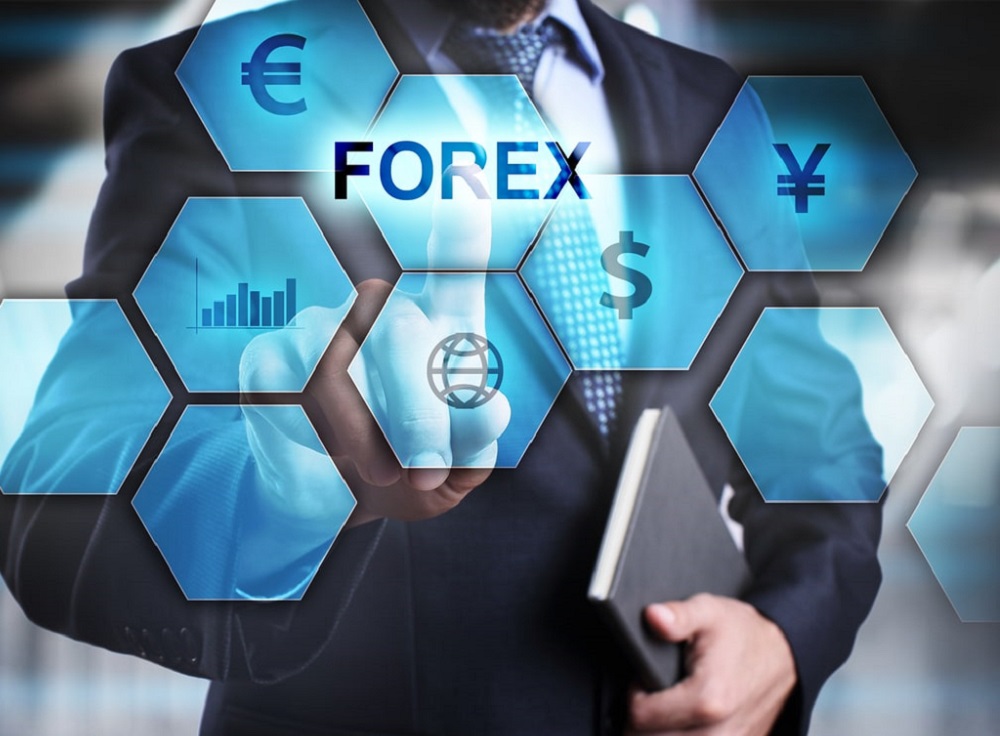
Learn to Trade
It runs free two hour workshops at locations across the UK, as well as webinars. It also provides longer paid-for courses at its office in Fulham, which incorporates a dedicated classroom suite and trading floor.
The free workshops cover the basics of forex such as:
- Fundamentals of trading
- Risk management
- Trading strategies
- The psychology of trading
- Different trading strategies
- Learning to read trading charts
- Executing trades
To take this course, you will need to use Learn to Trade’s trading software, SmartCharts.
Final Thoughts
Even the best traders will lose money sometimes, but if you can start to regularly turn a profit, then you are well on your way to success.
By learning from others’ achievements and putting in place your own thoroughly researched trading strategies and risk management systems, you could start to make yourself a healthy income in no time.
Myanfx-edu does not provide tax, investment or financial services and advice. The information is being presented without consideration of the investment objectives, risk tolerance, or financial circumstances of any specific investor and might not be suitable for all investors.
Financial Trading is not suitable for all investors & involved Risky. If you through with this link and trade we may earn some commission.
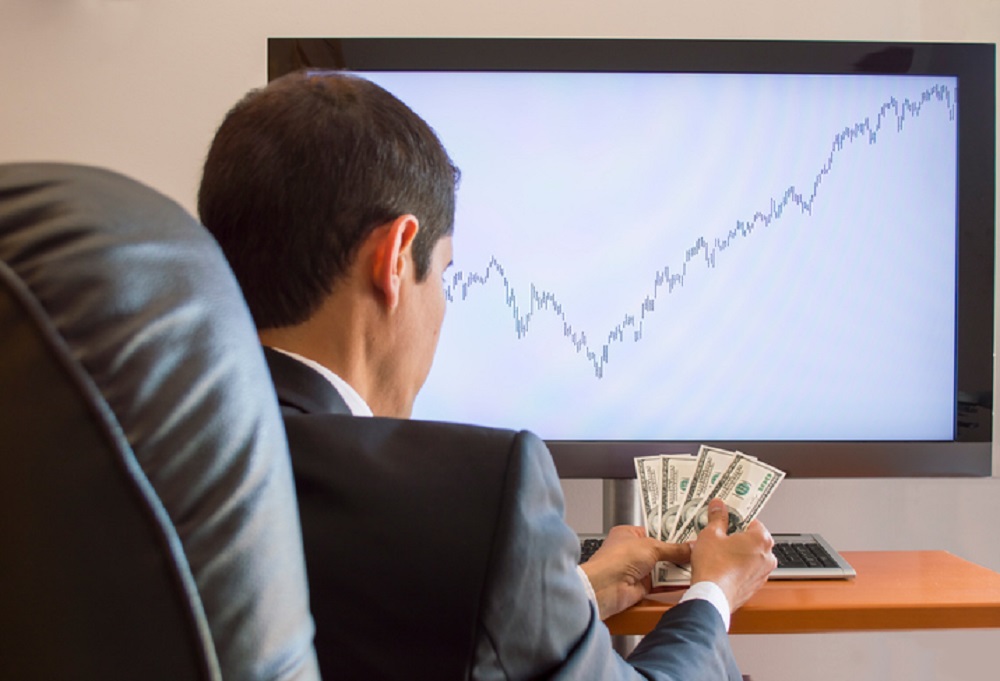
Forex Trader Salaries
- What Is the Foreign Exchange Market?
- Forex Trading Roles
- Forex Analyst
- Forex Account Manager/Trader
- Forex Exchange Operations Associate
- What Is the Average Salary of an Employed Forex Trader?
- What Makes up the Salary of an Employed Forex Trader?
- What Might Affect the Salary of an Employed Forex Trader?
- The Average Salary of an Employed Forex Trader
- What Is the Average Salary of an Independent (at Home) Forex Trader?
- Return on Investment (ROI)
- The Amount of Money You Start With
- Costs Incurred Through Forex Trading
- Examples of Profit Earned by an Independent Forex Trader
- Average Salary of an Independent Forex Trader
- How Many Hours Will You Have to Work?
- How Do Forex Trader Salaries Differ by Location?
- Employed or Independent? The Pros and Cons
- Final Thoughts
A forex trader buys and sells currency on the foreign exchange. They assess and take advantage of the values of different currencies, whether rising or falling, to make a profit for a financial organization, for clients or themselves.
A forex trader may be:
- Employed by a financial organization, such as a hedge fund or an international bank
- Employed by a group of clients to trade on their behalf
- Self-employed as an independent trader
- Acting as an independent trader as an additional source of income
What Is the Foreign Exchange Market?
The foreign exchange (forex) market is the largest global market to the value of over $5 trillion.
The forex market is a network of brokers and financial institutions, covering both over the counter (OTC) transactions by individuals involved in forex trading and interbank transactions carried out by large banking organizations.
The most traded currency on the forex market is the US dollar.
Forex Trading Roles
The job of forex trader requires the fulfillment of several roles:
Forex Analyst
A forex analyst researches currency markets and political/economic factors that may affect the Forex to inform their employer and clients on the most advantageous investments to make.
This role is also sometimes known as a currency researcher or a currency strategist.
Forex Account Manager/Trader
Dealing with one or more clients, an account manager is responsible for making buying and selling decisions on their clients’ behalf and handling large amounts of money.
They are expected to meet profit targets and, often, to already have a high level of forex market experience.
Forex Exchange Operations Associate
A forex exchange operations associate supports the forex trader by providing a customer-service role, carrying out the necessary administration tasks; for instance, verifying customer ID and processing customer withdrawals and deposits.
What Is the Average Salary of an Employed Forex Trader?
Before we can arrive at the average salary of an employed forex trader, it is necessary to look at what makes up that salary and what could affect the level of that salary.
What Makes up the Salary of an Employed Forex Trader?
If you work as an employed forex trader, your salary will be made up of:
- A base salary– This is what you will receive each month, regardless of your performance
- Bonuses and commission– This will be based on your performance, the performance of the team of traders within the organization and company turnover
- You may also be offered certain employee benefits, such as health insurance, holiday allowance, profit-sharing scheme or 401(k) pension plan
What Might Affect the Salary of an Employed Forex Trader?
Forex trader base salaries may vary for several reasons:
- Your level of forex market and trading experience
- Education, both general and financial
- The financial organization you work for
- The geographical location of where you work
- Length of service and the seniority of your forex trading position
Factors affecting bonuses and commission include:
- Your performance
- Performance of the entire trading team
- Company turnover
- Current economic and political climate
- What other similar organizations pay
The Average Salary of an Employed Forex Trader
The average employed forex trader salary can be difficult to tie down for several reasons:
- The variance of base salaries based on the factors mentioned above
- Equally, the variance of bonuses and commissions
- Differing practices between financial organizations
- The extent to which bonuses and commission can inflate a forex trader’s salary, sometimes moving it from a five-figure number to a six or seven-figure number
- The lack of information available about forex traders involved with private hedge funds
Even organizations that can usually be relied on to provide average salary figures for other careers, do not appear to agree on average forex trader salaries.
For instance, the recruitment website Indeed sets an average base salary for a forex trader in the US at $91,050, and annual commission at $25,000 in 2020.
In comparison, Pay scale offers an average salary figure of $80,935 for the same period, with $21,000 commission, and a bonus figure of $14,916.
These average figures, however, are drawn across all levels of seniority of forex trader, a vast array of financial organizations and throughout different parts of the US, and are likely to be inflated by the six or seven figures that senior traders can earn.
What Is the Average Salary of an Independent (at Home) Forex Trader?
Independent (at home) forex traders use their own money to trade currencies, taking the entire risk on their shoulders but also retaining the entire profit.
An independent forex trader may make all their earnings from trading currencies or use forex trading as a way to make additional money over and above their employment in some other capacity.
As an independent forex trader, you have the choice whether to take the entire profit you make from the purchase and sale of currencies as your salary, take only a portion of your profit as salary and reinvest the remaining profit, or continually reinvest over a longer period to achieve a higher profit and, as a result, a higher salary.
Your final profit figure is arrived at by taking into account the following factors:
Return on Investment (ROI)
Your ROI is the amount of profit you make from trading currency. This figure will be affected by how much money you invest, whether you are a short-term or long-term investor, the number of trades you make, and your ability to efficiently analyze the forex market.
The Amount of Money You Start With
The amount of starting capital you have to invest in currencies can make a vast difference to your profit and salary as an independent forex trader.
An initial 5% return on an investment of $4,000 is $200.
If you can manage that return monthly and re-invest, your annual profit would amount to $3,183.42 ($7,183.42 – $4,000).
In comparison, an initial 5% return on an investment of $80,000 is $4,000.
Again, if you can maintain that return every month and re-invest, your annual profit would be $63,668.51 ($143,668.51).
The amount of starting capital you have to invest, if handled successfully, could make the difference between having some extra money on the side and supporting yourself solely from your income as an independent forex trader.
Costs Incurred Through Forex Trading
As with any business enterprise, there will be costs involved in operating as an independent forex trader, such as fees paid to your broker.
If you trade currency as a business and are self-employed, you may also have to factor in any of the following general business costs:
- Furniture and equipment; for instance, a computer
- Telephone line and broadband
- Business insurance
- Accountancy fees
Finally, as with any income you earn, your salary from forex trading will be subject to income tax. If you use forex trading to earn extra income, then you may find that this pushes you into a higher tax bracket.
For instance, if you already earn $25,000 and your additional earnings from forex trading amount to a further $15,000, you will move into a higher tax bracket, paying 22% income tax instead of 12%.
$25,000 with a 12% tax deduction: $25,000 – $3,000 = $22,000
$40,000 ($25,000 employed earnings and $15,000 forex trading income) with a 22% tax deduction: $40,000 – $8,800 = $31,200
Examples of Profit Earned by an Independent Forex Trader
To put the above into context, here is an example of what profit an independent forex trader could make using different starting amounts of capital and length of the investment.
This example assumes that profit will be earned at the same ROI for every month.
An independent forex trader has $500 to invest over a year. If they invest that amount, make a monthly 5% ROI and continue to re-invest that 5% (adding it to the original starting capital each month), they will have made a profit of $397.92 ($897.92 – $500) by the end of the year.
By comparison, investing $10,000 under the same conditions for a year would yield a profit of $7,958.56 ($17,958.56 – $10,000).
If that same independent forex trader continued to invest and receive the same monthly 5% ROI for a further two years, a $500 investment would see a profit of $2,395.90 ($2,895.90 – $500) at the end of the three years, and $10,000 would see a profit of $47,918.16 ($57,918.16 – $10,000).
The above figures are, however, dependent on consistently receiving a 5% ROI each month.
Average Salary of an Independent Forex Trader
As you can see, the average salary of an independent forex trader will depend on how much you invest, your trading methods and approach, whether you are a short-term or long-term investor, the forex market, any costs or losses you may incur and how much of your profit you decide to take as a salary.
The situation is completely individual to you and your forex dealings.
How Many Hours Will You Have to Work?
The forex market trades 24 hours Monday to Friday, and there may be some overlap on the beginning and end of that working week depending on which currencies you are involved with in comparison to the country you live in.
As an employed forex trader, your working day could be expected to stretch to 12 hours, or you could be asked to work on a shift basis so that one or more of the traders at your workplace have eyes on the forex market at all times. You may also be expected to work on a weekend.
As an independent forex trader, you have a level of flexibility. The choice is yours as to how much time you spend working on your forex investment.
If you are employed elsewhere and this is an additional source of income, you may be limited on how much time you can spend on your forex dealings; however, it is possible to be a successful part-time forex trader.
How Do Forex Trader Salaries Differ by Location?
The salary of an independent forex trader will generally not be affected by location, other than local living costs.
Employed forex trader salaries, however, can vary greatly depending on where in the US you work.
For instance, a forex trader working in New York may expect to reasonably earn over twice the salary of a similar trader working in Nevada.
Outside of the US, an average salary for a forex trader could be around:
- £34,668 (approximately $44,581) in England
- €71,599 (approximately $83,798) in Germany
- 130,000 FR (approximately $140,967) in Switzerland
- CA$99,975 (approximately $74,746) in Canada
- €64,473 (approximately $75,449) in France
Employed or Independent? The Pros and Cons
The main benefit of working as an employed forex trader is the security of receiving your base salary, and possibly employee benefits, regardless of your performance.
In addition to this, bonuses and commission can greatly increase your annual earnings from five to six- or seven-digit salaries.
However, along with that security comes long hours and working to your employer’s targets and expectations.
In comparison, the main benefit of operating as an independent forex trader, whether full-time or as an additional source of income, is flexibility (hours, amount to invest, what to invest in, and when to buy and sell) and the opportunity to keep all of the profits you make.
Hand in hand with these benefits, however, is the fact that you are putting your own money at risk.
You are also responsible for all the costs involved.
Final Thoughts
As an employed forex trader, your salary will depend on the stage you are at in your career progression, the organization that employs you, where in the US (or the world) you work, and your trading performance.
As an independent forex trader, your salary will rely on how much you have to invest, your investment strategy and any involved costs.
Whether you work as an employed forex trader or an independent, it is difficult to state what an average salary will be, but there is the potential to make a good salary if the trades are in your favor
Myanfx-edu does not provide tax, investment or financial services and advice. The information is being presented without consideration of the investment objectives, risk tolerance, or financial circumstances of any specific investor and might not be suitable for all investors.
Financial Trading is not suitable for all investors & involved Risky. If you through with this link and trade we may earn some commission.

Best for: Personal tuition Thomas Kralow is a seasoned investor who has

Best for: New tradersPrice: £199 BizInTra’s beginner trading course helps new traders

Best for: Automated trading (those who want to use forex robots)Price: Usually

Best for: Multi market overview The one day eToro Trading School course covers
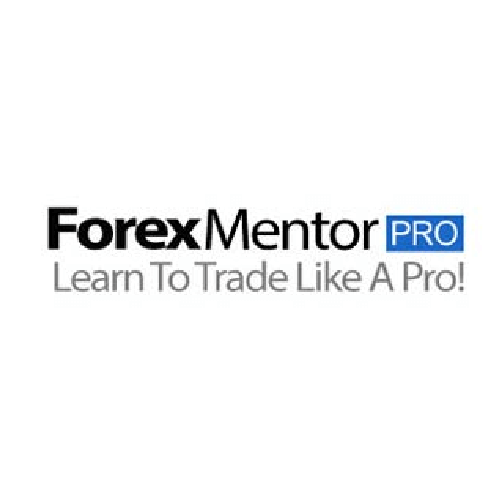
Best for: Training recommended by professionals. This training, like many others
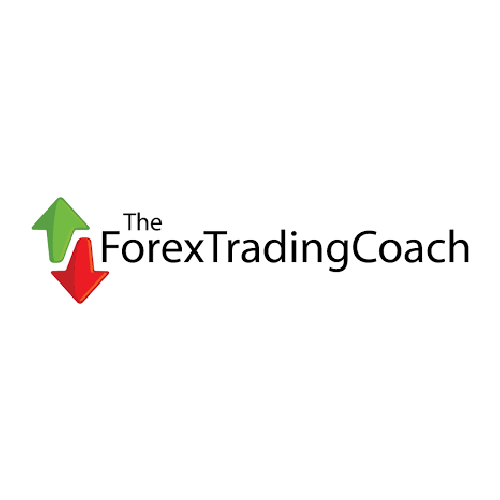
Best for: Traders of all abilities looking to improvePrice: Not stated, enquires

Best for: Reliable coaching-based training Established in 2003 by veteran trader

Best for: Live Streams, Strategies and Pro Mentorship ForexSignals.com is one

Best for: Big investors in their forex educationPrice: Professional Forex Trader course
Want to Trade Online?
Easy Trading Platform
Copy Experienced Traders
Trade from Your Pocket
Trade with Liteforex
- Best Mobile App
- Free Trading Courses
- Low Fees
- Fast Execution
- 24/7 Customer Support
CFD Trading on financial markets carries risks. Before deciding to trade, you need to ensure that you understand the risks involved.





